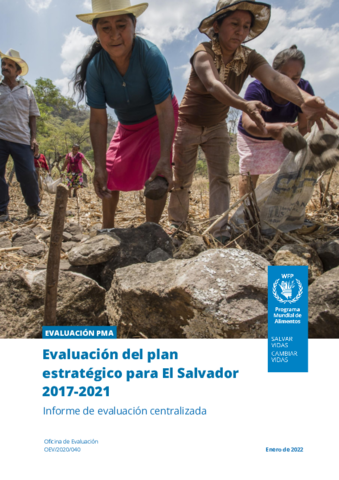
The evaluation was commissioned by the independent Office of Evaluation to provide evaluative evidence for accountability and learning to inform the design of the next WFP CSP in El Salvador. It covers WFP activities implemented from 2016 to 2020.
It was conducted between October 2020 and July 2021 to assess WFP’s strategic positioning and role and the extent to which WFP has made the strategic shift expected by the CSP; WFP’s contributions to strategic outcomes; efficiency and factors that explain WFP performance.
The evaluation concluded that:
- The CSP achieved positive results across all outcomes, with significant contributions to Sustainable Development Goals 2 and 17 and the 2030 Agenda for Sustainable Development overall.
- WFP is recognized as a key player in humanitarian response in the country but is less well known for its contributions to development and capacity strengthening.
- The CSP architecture was intended to provide more flexibility in programming and enhanced internal synergies among strategic outcomes. With few exceptions, including COVID-19 response, however, these aspects were not fully explored, due to siloed programmatic work.
- The CSP did not incorporate a gender transformative approach to country capacity strengthening and to partnership.
- The lack of an established internal knowledge management strategy brought about a limited application of results-based management principles, and the country office did not make optimal use of the available evidence for its own strategic decision-making during implementation.
- Some of the assumptions underpinning the logic of intervention of the CSP at design stage only partially held true during implementation, particularly as relates to availability of funding and continuation of projects by government counterparts, with implications for programming and sustainability of results.
